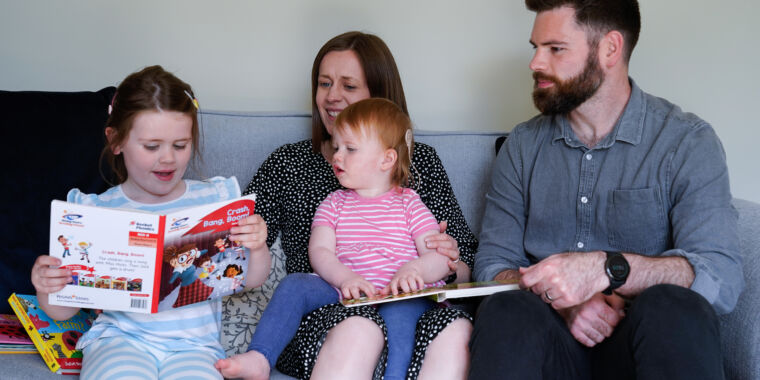Transforming Gene Therapy to Restore Hearing in Children with Deafness
Many heartwarming videos capturing the precious moments of children with deafness gaining the ability to hear have been circulating recently, showcasing their delightful reactions to the sounds around them. Thanks to groundbreaking advancements in gene therapy, more children are experiencing these life-changing moments without the need for hearing aids or cochlear implants.
At the recent annual conference of the American Society for Gene & Cell Therapy in Baltimore, pioneering researchers in the field presented remarkable results to experts and attendees. Notable presentations included Larry Lustig from Columbia University and Yilai Shu from Fudan University, who shared their groundbreaking clinical trial data on the efficacy of gene therapy in restoring hearing to children with profound deafness.
Gene Therapy for Profound Deafness
Larry Lustig’s presentation focused on two children with profound deafness, the most severe form of hearing impairment. These children received experimental gene therapy and are now able to hear at normal levels without the need for traditional interventions. Remarkably, one of the recipients was only 11 months old at the time of treatment, making her the youngest child worldwide to undergo gene therapy for genetic deafness.
On the following day, Yilai Shu provided a one-year progress update on six children who participated in the first in-human trial of gene therapy for genetic deafness. Encouragingly, five out of the six children experienced a significant improvement in their hearing abilities.
The trials conducted by Lustig and Shu shared a common goal of restoring hearing function in children with genetic mutations affecting the OTOF gene, responsible for coding the otoferlin protein crucial for auditory signal transmission in the inner ear. Leveraging adeno-associated viruses as vectors, the gene therapy treatments aimed to introduce a functional OTOF gene into the inner ear to restore auditory signaling.
Progress and Future Prospects
Both trials demonstrated a gradual improvement in hearing following treatment, with patients experiencing restored auditory function over time. The rapid progress observed in the younger recipients underscores the potential of gene therapy in addressing severe hearing impairments at an early age.
While the current treatments represent a significant breakthrough in gene therapy, researchers acknowledge that long-term monitoring and assessment are essential to determine the durability of hearing restoration. The potential need for additional treatments or interventions in the future remains uncertain, highlighting the ongoing challenges in the field.
Despite these uncertainties, researchers are optimistic about the transformative impact of gene therapy in addressing rare forms of deafness caused by specific genetic mutations. Lustig envisions the current advancements as a “jumping point” for the development of gene therapy for more prevalent types of hearing loss in the future.
As this cutting-edge field continues to evolve, the successful outcomes of these trials offer hope for children with profound deafness and pave the way for future innovations in auditory restoration through gene therapy.
Image/Photo credit: source url





